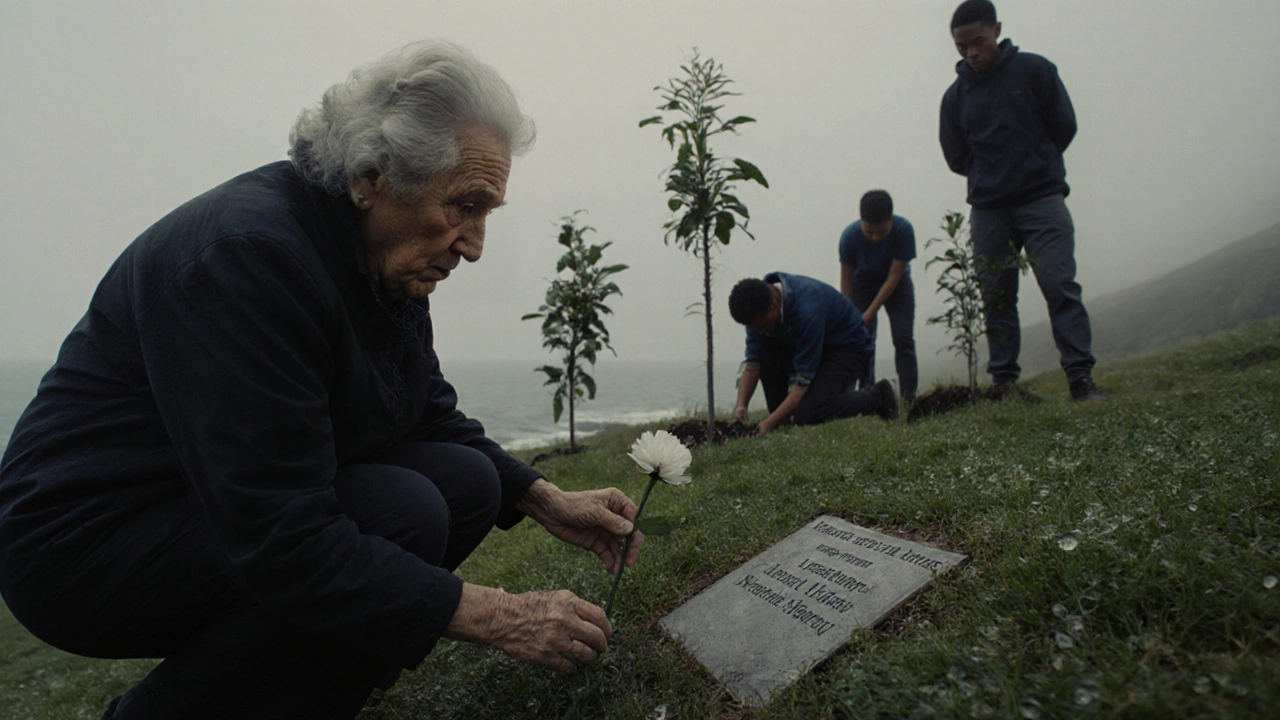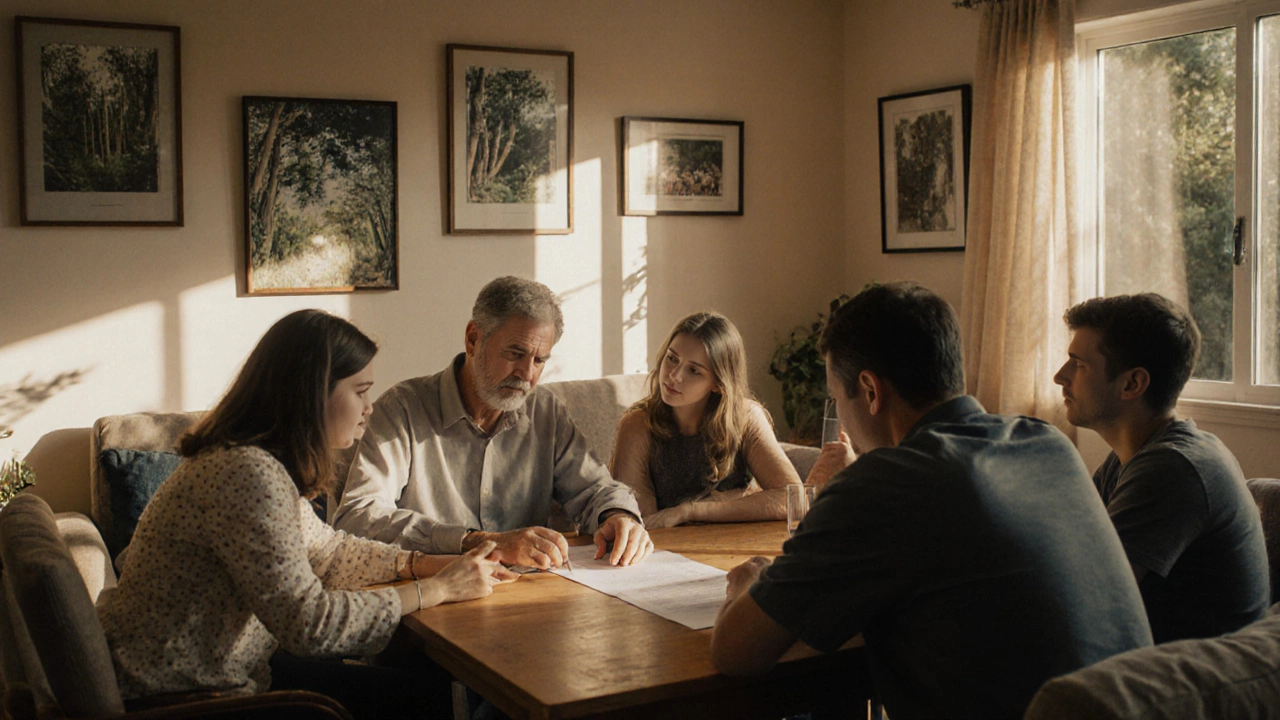Charitable Trust Tax Calculator
When you transfer assets to a charitable trust in New Zealand, you can claim a tax deduction for the value of what you give. This can significantly reduce your taxable estate.
Key Benefit: Your trust can generate tax-free income while supporting causes you care about.
Your Tax Savings
By transferring your asset to a charitable trust, you can save on tax payments while ensuring your legacy continues to support causes you care about.
People don’t set up charitable trusts just because they have extra money. They do it because they want their impact to last longer than they do. A charitable trust isn’t just a donation-it’s a legal tool that turns personal values into permanent change. And it’s not just for billionaires. Middle-income families, small business owners, and retirees across New Zealand and beyond are using them to make sure their legacy supports causes they care about-whether that’s protecting native forests, funding youth scholarships, or helping families access mental health care.
They want control over how their money is used
When you give $10,000 to a charity today, you’re trusting them to use it wisely. But what if you want to be more specific? What if you only want your money going to Māori youth leadership programs in Taranaki? Or if you want to fund free therapy sessions for veterans in Christchurch every year, forever? A charitable trust lets you write those rules into law.
Unlike a one-time donation, a charitable trust has a governing document-called a trust deed-that spells out exactly who benefits, how funds are distributed, and who manages the money. You can say, for example, that 70% goes to education, 20% to housing, and 10% to environmental restoration. You can even name successors to carry out your vision if your children or trusted advisors take over after you’re gone. That kind of control doesn’t exist with most charities, where donors have little say beyond writing a check.
They’re looking for tax advantages
Setting up a charitable trust in New Zealand comes with real financial benefits. When you transfer assets-like cash, shares, or property-into a registered charitable trust, you can claim a tax deduction for the value of what you give. The Inland Revenue Department allows this deduction if the trust is registered under the Charities Act 2005.
For someone with a large estate, this can mean significant savings. Say you own a rental property worth $800,000. Instead of leaving it to your heirs (who might face capital gains tax or inheritance complications), you transfer it into a charitable trust. You get an immediate tax deduction on the property’s value. The trust then rents out the property, uses the income to fund community programs, and keeps the asset intact for future generations. No sale. No capital gains. Just ongoing impact.
Plus, once the trust is set up and registered, any income it earns-like dividends or rent-is usually tax-free. That means more money stays in the community instead of going to the government.
They want to avoid probate and simplify estate planning
When someone dies without a clear plan, their assets go through probate-a slow, public, and often expensive court process. It can take months, sometimes years, before family members even see a dollar. A charitable trust bypasses all of that.
If you put assets into a charitable trust while you’re still alive, those assets are no longer part of your personal estate. That means they don’t get tied up in probate. Your beneficiaries don’t wait. The trust keeps running. Your cause keeps getting funded. And your family avoids the stress of legal paperwork during a hard time.
Many people in their 50s and 60s start thinking about this. They’ve built something. Now they want to make sure it doesn’t vanish in bureaucracy. A charitable trust gives them peace of mind. It’s not about avoiding family-it’s about making sure your values survive your passing.

They want to inspire others
There’s something powerful about setting up a charitable trust that goes beyond money. It sends a message. It says, “This matters to me-and I’m putting my resources where my heart is.”
Families often start trusts after losing a loved one. A parent who struggled with diabetes creates a trust funding diabetes education in schools. A teacher who spent 40 years in rural classrooms sets up a scholarship fund for future educators. These aren’t just financial decisions-they’re emotional ones. And they ripple out.
When a trust becomes public-through annual reports, community events, or local media-it encourages others to do the same. One person’s trust can spark a movement. In Hawke’s Bay, a small family trust started in 2018 to support Māori language immersion programs has now inspired five other local families to create their own. That’s the kind of legacy money can’t buy-but a trust can build.
They want to support causes that don’t get enough attention
Big charities get headlines. But what about the quiet heroes? The local group running free art therapy for trauma survivors in Whanganui. The volunteer-run shelter for stray cats in Dunedin. The initiative teaching digital skills to seniors in Gisborne.
These groups often can’t apply for government grants. They don’t have the staff to write big funding proposals. But they need steady, reliable income. A charitable trust can provide that. You can set up a trust that gives $10,000 a year, forever, to a small organization that no one else funds. That kind of support is life-changing for them-and it’s something only a trust can do.
It’s not about replacing government or large NGOs. It’s about filling the gaps they can’t reach. And that’s exactly why so many people choose this path.

They want to pass on values, not just wealth
Many people who set up charitable trusts say the same thing: “I didn’t want my kids to inherit money-I wanted them to inherit purpose.”
A trust can become a family tradition. You can name your children or grandchildren as trustees. You can require them to meet with the beneficiaries every year. You can even write into the trust deed that they must volunteer at least 20 hours a year to stay involved. It turns giving from a transaction into a responsibility-and a bond.
One couple in Nelson set up a trust to support environmental restoration in the Kaikōura region. Their three children now serve on the board. They meet quarterly. They visit the sites. They talk to local iwi. One of the kids, now 26, says it’s the most meaningful thing she’s ever done. “It’s not about the money,” she told a local paper. “It’s about being part of something that outlasts us.”
They want to make a difference without giving everything away
You don’t need to be rich to start a charitable trust. Many people begin with a modest amount-$50,000, even $20,000-and let it grow over time through smart investing. Some use life insurance policies, others donate appreciated shares, and some even set up trusts with their home equity.
There’s also a type called a “charitable remainder trust.” You put assets in, get income from them during your lifetime, and when you pass, the rest goes to charity. It’s a way to support your cause while still keeping some financial security.
It’s not an all-or-nothing choice. You can give part of your estate. You can give slowly. You can give in a way that doesn’t leave your family struggling. That balance-between generosity and responsibility-is why so many find this approach so powerful.
Can anyone set up a charitable trust in New Zealand?
Yes, as long as you’re over 18 and have assets to contribute. You don’t need to be wealthy, but you do need to be clear about your goals. You’ll need to draft a trust deed, choose trustees, and register the trust with Charities Services. The process isn’t complicated, but it’s important to get legal advice to make sure your trust works the way you intend.
How long does it take to set up a charitable trust?
If you have your documents ready, the legal setup can take 2-4 weeks. Registration with Charities Services usually takes another 4-8 weeks. So plan for about 2-3 months total. Starting early gives you time to think through your goals and make changes before finalizing.
Do I need a lawyer to set up a charitable trust?
You don’t legally need one, but it’s strongly recommended. A lawyer who specializes in trusts can help you avoid costly mistakes-like vague wording that leads to disputes, or failing to meet registration requirements. The cost of legal help (usually $2,000-$5,000) is often far less than the cost of fixing errors later.
Can I change the terms of the trust later?
It depends. Once a trust is registered, the core purpose can’t be changed easily. But you can usually update how funds are distributed, add new beneficiaries, or change trustees-so long as it still aligns with your original charitable intent. Some deeds include flexibility clauses for this reason. Always check your trust deed and consult a legal expert before making changes.
What happens if the trust runs out of money?
If a charitable trust can no longer operate, its remaining assets must go to another registered charity with a similar purpose. This is required by law. That’s why many people choose to set up trusts with a “remainder clause” that names a backup charity-like a national organization that shares their cause. It ensures the mission continues, even if the original funding runs dry.





